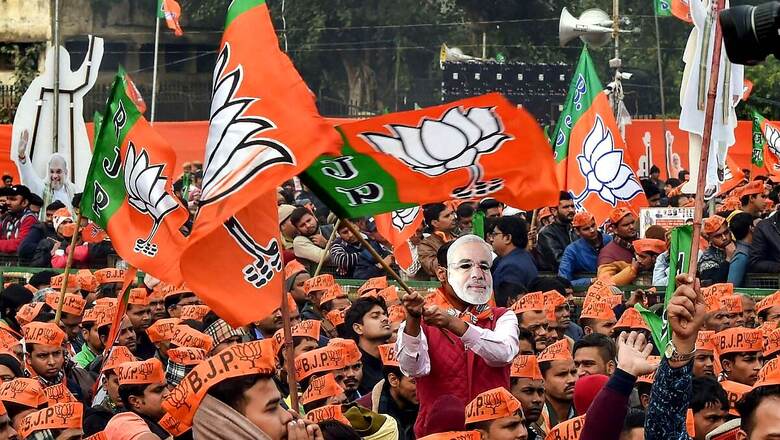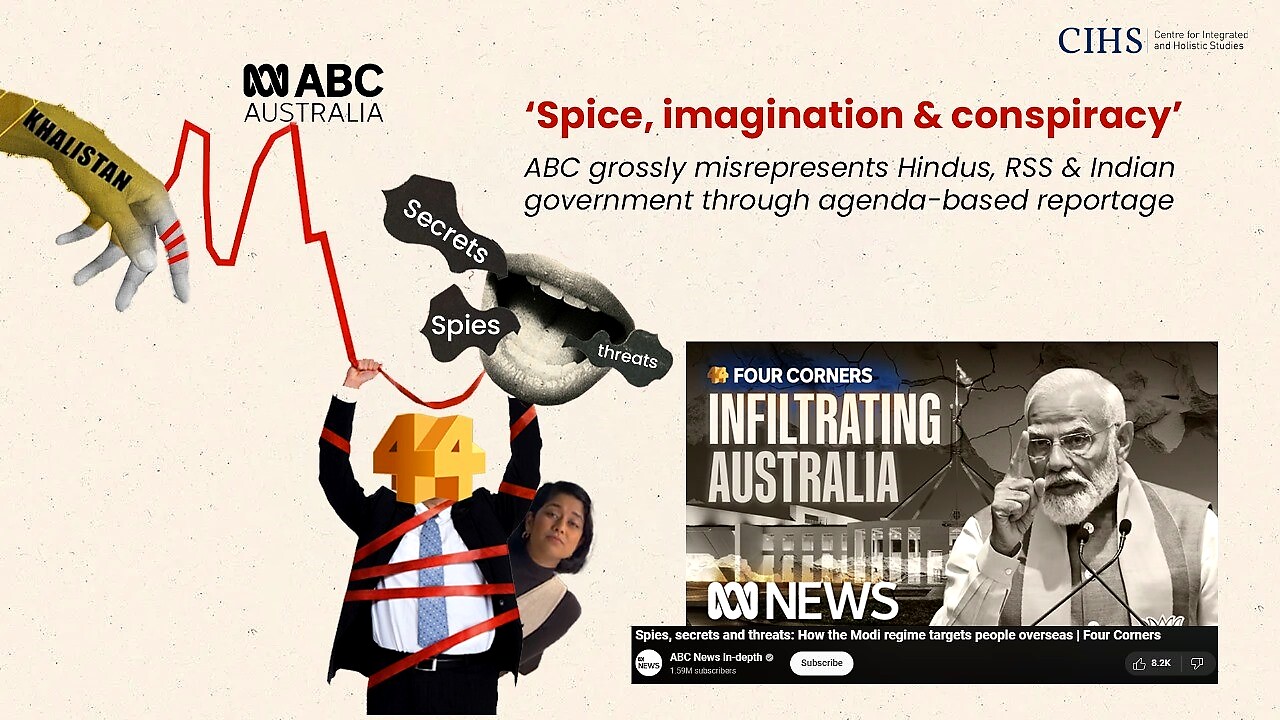
views
A 46-minute documentary, ‘Spies, secrets and threats: How the Modi regime targets people overseas’, broadcasted by the Australian Broadcasting Corporation (ABC) and featuring the infamous Australian journalist Avani Dias, declared its extreme antagonism towards the Hindu-centric Rashtriya Swayamsevak Sangh (RSS). Through this documentary, the state-run ABC also targeted the ruling Bharatiya Janata Party (BJP), whose senior leader, Narendra Modi, has been elected prime minister for a third consecutive term.
The ABC documentary and Dias reek of bias and misrepresentation, constantly presenting the RSS as a paramilitary group despite its long-standing efforts as a cultural and service-oriented movement. Widely recognised as the world’s largest voluntary organisation, the RSS is dedicated to community service, particularly for the deprived sections of Indian communities. Overlooking this, Dias intentionally distorted its image, dismissing its substantial contributions to a larger society.
Selfless service work carried out by the RSS volunteers, inspired by its founder Dr Keshav Baliram Hedgewar’s pre-independence movement experiences, has been largely ignored or intentionally set aside to paint a shady picture of an open flexible organisation.
Avani Dias seems to have blinded herself and the ABC viewers to the Rashtriya Swayamsevak Sangh’s service activities through over 120,000 projects in areas ranging from education and healthcare to socio-economic empowerment. These projects have positively impacted millions of families in India. A whopping 2.145 million individuals and families in Bharat have benefitted and continue to be supported by projects across various sectors, contributing to improved living standards.

Beneficiaries in the healthcare sector separately have crossed 8.716 million and food support programmes have touched 2.735 million. Community well-being and development are the underlying objectives of RSS volunteers’ efforts, which are comprehensive and unique in their organisation.
Dias argued that minorities lack sufficient opportunities under Prime Minister Narendra Modi’s leadership, a claim seemingly supported by the ABC editorial board. However, this claim is factually incorrect and is contradicted by evidence of the Indian government’s welfare initiatives aimed at minorities since 2014. For example, the Maulana Azad National Fellowship (MANF) provides five years of financial assistance, while the Padho Pardesh scheme offers interest subsidies for studying abroad at the Masters, MPhil, and PhD levels.
The ‘Seekho aur Kama’ (Learn & Earn) initiative, in place since 2013-14, focuses on skill development for minorities, equipping young people with modern and traditional skills tailored to market demands. Additionally, the Pradhan Mantri Jan Vikas Karyakram (PMJVK) targets the development of essential community infrastructure in underserved areas, aiming to improve the living standards of minority populations. Despite these existing initiatives with their stated goals, Dias seems to have peddled anti-India agendas and divisive ideas.
The documentary’s most glaring flaw is its blatant endorsement of Pakistan-backed Khalistani terrorism. The script reads as though Khalistani supporters themselves crafted it, with Dias serving merely as their mouthpiece. This is a blatant attack on journalistic integrity and an insult to sufferers of Khalistani terrorism. In the 1980s, Khalistani terrorists unleashed a wave of horrific violence in Punjab, India, brutally murdering thousands of innocent people. Yet, Dias selectively disregarded this grave and historical truth, shamefully overlooking the horrific adversity and bloodshed caused by these separatists.
Dias parrots the Khalistani narrative, falsely claiming that Sikhs are victims under pressure in Australia. The fact is otherwise. A handful of aggressive Khalistani extremists have continued their campaign of violence and terror not just in India, but also in other nations including Australia.
In less than a month, pro-Khalistani outfits in Australia launched three distinct attacks on Hindu temples. On January 23, 2023, Hare Krishna Temple in Albert Park, Melbourne came under attack. On January 17, 2023, Melbourne’s historic Shiva Vishnu Temple at Carrum Downs was targeted. On January 12, 2023, Khalistan activists vandalised and destroyed BAPS Swaminarayan Mandir, a Hindu temple in Melbourne, by spray-painting anti-India graffiti. The walls of Melbourne’s landmark Swaminarayan temple in the northern suburbs of Mill Park have been spray-painted with ‘Hindustan Murdabad’ slogans.
Hundreds of innocent Indians in Australia have been threatened or abused by these terrorists, a reality that Dias completely ignores. Instead, she promotes Khalistani propaganda while overlooking their ongoing terrorist activities and the true threat they pose to peace and security. It’s important to note that not the entire Sikh community in India, Australia, or elsewhere endorses this divisive agenda.
Despite the documentary’s contentious storylines, it is crucial to highlight India and Australia’s developing strategic, economic and bilateral relations. Both countries have worked together extensively on a range of issues, including trade, defence, education, and cultural exchange. The relationship is based on mutual respect and democratic values with the goal of enhancing regional stability and economic progress. The documentary’s description of chronic animosity and conflict is refuted by the upward trend in Indo-Australian relations. Collaborative initiatives in education, technology, and counter-terrorism demonstrate both countries’ commitment to fostering a robust and long-term alliance.
Dias’s report is a textbook example of biased and irresponsible journalism. It misrepresents the RSS, glorifies Khalistani crimes and dismisses recent improvements in Indo-Australian ties. This kind of reporting does more than just misinform; it actively fosters division and provides a platform for dangerous radical agendas. The Australian Broadcasting Corporation must be held accountable for airing such a blatantly biased and factually flawed story. True journalism should strive for honest representation, not act as a propaganda tool for violent extremists.
Avani Dias’s report is a disservice to the profession and, most importantly, to the countless individuals who have suffered at the hands of the terrorists whose ideology she so blatantly promotes.
The author is a doctoral fellow at Amity University in Gwalior, content head at Centre for Integrated and Holistic Studies. Views expressed in the above piece are personal and solely those of the author. They do not necessarily reflect News18’s views.




















Comments
0 comment